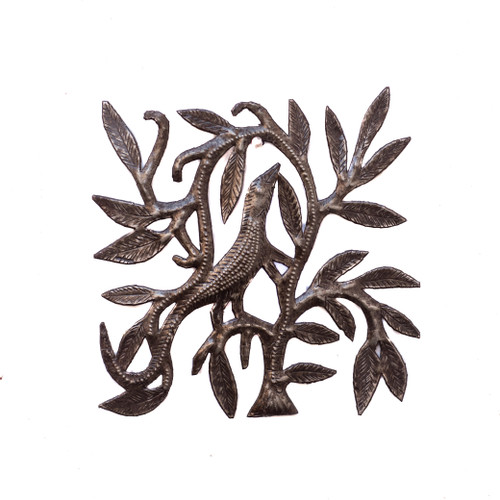Product Description
It's Cactus- Haitian Metal Art
Tree of Life with Bird on Trunk, Handcrafted Wall Hanging Metal Artwork, Indoor Outdoor Display 23" With branches reaching skyward and roots spreading out into the earth below, the Celtic Tree of Life symbolizes the Druid belief in the link between heaven and earth.
This piece is hand-cut from a recycled 50-gallon steel drum. To begin, laborers remove the ends of the drum and place them inside the remaining cylinder along with scrap paper, dried banana or sugar cane leaves. Igniting the contents removes all paint and residue. When cooled, the drum is cut down the side and flattened out to create a "metal canvas" of approximately 3' x 6'. From there, the artist takes over, chalking his intended design on the prepared metal. Using hammer and chisel, he cuts the form and with other simple tools, pounds out intricate decorative patterns. The finished piece is weather-coated so that it may be displayed indoors or out.

















